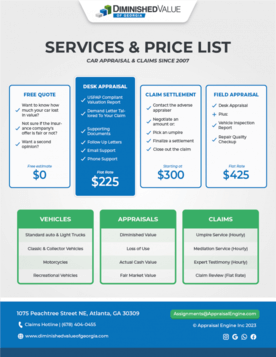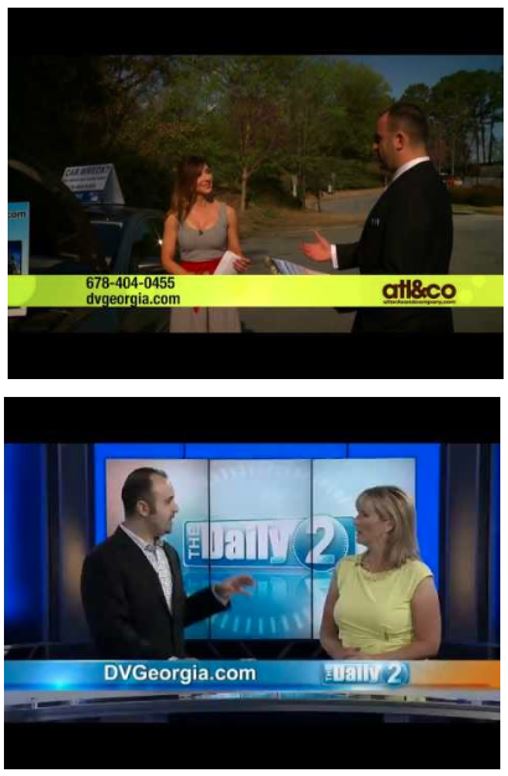
If the insurance company is offering you an unfair loss in value amount, you need to hire an independent appraiser to rebut their valuation.
You can also escalate the claim by contacting the Texas Insurance Commissioner.
To get the process started and to get a free estimate, please fill out the form below.
Insurance Bad Faith in Texas
Citation: Tex.Ins.Code.Ann. §21.21-2;Tex. Bus.&Com.Code §17.46
BUSINESS AND COMMERCE CODE
TITLE 2. COMPETITION AND TRADE PRACTICES
CHAPTER 17. DECEPTIVE TRADE PRACTICES
SUBCHAPTER A. GENERAL PROVISIONS
Sec. 17.46. DECEPTIVE TRADE PRACTICES UNLAWFUL. (a) False, misleading, or deceptive acts or practices in the conduct of any trade or commerce are hereby declared unlawful and are subject to action by the consumer protection division under Sections 17.47, 17.58, 17.60, and 17.61 of this code.
(b) Except as provided in Subsection (d) of this section, the term “false, misleading, or deceptive acts or practices” includes, but is not limited to, the following acts:
(1) passing off goods or services as those of another;
(2) causing confusion or misunderstanding as to the source, sponsorship, approval, or certification of goods or services;
(3) causing confusion or misunderstanding as to affiliation, connection, or association with, or certification by, another;
(4) using deceptive representations or designations of geographic origin in connection with goods or services;
(5) representing that goods or services have sponsorship, approval, characteristics, ingredients, uses, benefits, or quantities which they do not have or that a person has a sponsorship, approval, status, affiliation, or connection which he does not;
(6) representing that goods are original or new if they are deteriorated, reconditioned, reclaimed, used, or secondhand;
(7) representing that goods or services are of a particular standard, quality, or grade, or that goods are of a particular style or model, if they are of another;
(8) disparaging the goods, services, or business of another by false or misleading representation of facts;
(9) advertising goods or services with intent not to sell them as advertised;
(10) advertising goods or services with intent not to supply a reasonable expectable public demand, unless the advertisements disclosed a limitation of quantity;
(11) making false or misleading statements of fact concerning the reasons for, existence of, or amount of price reductions;
(12) representing that an agreement confers or involves rights, remedies, or obligations which it does not have or involve, or which are prohibited by law;
(13) knowingly making false or misleading statements of fact concerning the need for parts, replacement, or repair service;
(14) misrepresenting the authority of a salesman, representative or agent to negotiate the final terms of a consumer transaction;
(15) basing a charge for the repair of any item in whole or in part on a guaranty or warranty instead of on the value of the actual repairs made or work to be performed on the item without stating separately the charges for the work and the charge for the warranty or guaranty, if any;
(16) disconnecting, turning back, or resetting the odometer of any motor vehicle so as to reduce the number of miles indicated on the odometer gauge;
(17) advertising of any sale by fraudulently representing that a person is going out of business;
(18) advertising, selling, or distributing a card which purports to be a prescription drug identification card issued under Section 4151.152, Insurance Code, in accordance with rules adopted by the commissioner of insurance, which offers a discount on the purchase of health care goods or services from a third party provider, and which is not evidence of insurance coverage, unless:
(A) the discount is authorized under an agreement between the seller of the card and the provider of those goods and services or the discount or card is offered to members of the seller;
(B) the seller does not represent that the card provides insurance coverage of any kind; and
(C) the discount is not false, misleading, or deceptive;
(19) using or employing a chain referral sales plan in connection with the sale or offer to sell of goods, merchandise, or anything of value, which uses the sales technique, plan, arrangement, or agreement in which the buyer or prospective buyer is offered the opportunity to purchase merchandise or goods and in connection with the purchase receives the seller’s promise or representation that the buyer shall have the right to receive compensation or consideration in any form for furnishing to the seller the names of other prospective buyers if receipt of the compensation or consideration is contingent upon the occurrence of an event subsequent to the time the buyer purchases the merchandise or goods;
(20) representing that a guarantee or warranty confers or involves rights or remedies which it does not have or involve, provided, however, that nothing in this subchapter shall be construed to expand the implied warranty of merchantability as defined in Sections 2.314 through 2.318 and Sections 2A.212 through 2A.216 to involve obligations in excess of those which are appropriate to the goods;
(21) promoting a pyramid promotional scheme, as defined by Section 17.461;
(22) representing that work or services have been performed on, or parts replaced in, goods when the work or services were not performed or the parts replaced;
(23) filing suit founded upon a written contractual obligation of and signed by the defendant to pay money arising out of or based on a consumer transaction for goods, services, loans, or extensions of credit intended primarily for personal, family, household, or agricultural use in any county other than in the county in which the defendant resides at the time of the commencement of the action or in the county in which the defendant in fact signed the contract; provided, however, that a violation of this subsection shall not occur where it is shown by the person filing such suit he neither knew or had reason to know that the county in which such suit was filed was neither the county in which the defendant resides at the commencement of the suit nor the county in which the defendant in fact signed the contract;
(24) failing to disclose information concerning goods or services which was known at the time of the transaction if such failure to disclose such information was intended to induce the consumer into a transaction into which the consumer would not have entered had the information been disclosed;
(25) using the term “corporation,” “incorporated,” or an abbreviation of either of those terms in the name of a business entity that is not incorporated under the laws of this state or another jurisdiction;
(26) selling, offering to sell, or illegally promoting an annuity contract under Chapter 22, Acts of the 57th Legislature, 3rd Called Session, 1962 (Article 6228a-5, Vernon’s Texas Civil Statutes), with the intent that the annuity contract will be the subject of a salary reduction agreement, as defined by that Act, if the annuity contract is not an eligible qualified investment under that Act or is not registered with the Teacher Retirement System of Texas as required by Section 8A of that Act; or
(27) taking advantage of a disaster declared by the governor under Chapter 418, Government Code, by:
(A) selling or leasing fuel, food, medicine, or another necessity at an exorbitant or excessive price; or
(B) demanding an exorbitant or excessive price in connection with the sale or lease of fuel, food, medicine, or another necessity.
(c)(1) It is the intent of the legislature that in construing Subsection (a) of this section in suits brought under Section 17.47 of this subchapter the courts to the extent possible will be guided by Subsection (b) of this section and the interpretations given by the Federal Trade Commission and federal courts to Section 5(a)(1) of the Federal Trade Commission Act [15 U.S.C.A. Sec. 45(a)(1)].
(2) In construing this subchapter the court shall not be prohibited from considering relevant and pertinent decisions of courts in other jurisdictions.
(d) For the purposes of the relief authorized in Subdivision (1) of Subsection (a) of Section 17.50 of this subchapter, the term “false, misleading, or deceptive acts or practices” is limited to the acts enumerated in specific subdivisions of Subsection (b) of this section.
INSURANCE CODE 21.21-2 HAS BEEN RENUMBERD TO:
Texas Insurance Code – Section 542.001. Short Title
§ 542.001. SHORT TITLE. This subchapter may be cited as the Unfair Claim Settlement Practices Act.
RELEVANT SECTION SEEMS TO BE:
§ 542.003. UNFAIR CLAIM SETTLEMENT PRACTICES PROHIBITED. (a) An insurer engaging in business in this state may not engage in an unfair claim settlement practice.
(b) Any of the following acts by an insurer constitutes unfair claim settlement practices:
(1) knowingly misrepresenting to a claimant pertinent facts or policy provisions relating to coverage at issue;
(2) failing to acknowledge with reasonable promptness pertinent communications relating to a claim arising under the insurer’s policy;
(3) failing to adopt and implement reasonable standards for the prompt investigation of claims arising under the insurer’s policies;
(4) not attempting in good faith to effect a prompt, fair, and equitable settlement of a claim submitted in which liability has become reasonably clear;
(5) compelling a policyholder to institute a suit to recover an amount due under a policy by offering substantially less than the amount ultimately recovered in a suit brought by the policyholder;
(6) failing to maintain the information required by Section 542.005; or
(7) committing another act the commissioner determines by rule constitutes an unfair claim settlement practice.
Loss in Value Questionnaire (Will take 2 minutes of your time)
Please fill out the form below to receive a FREE Diminished Value estimate.






